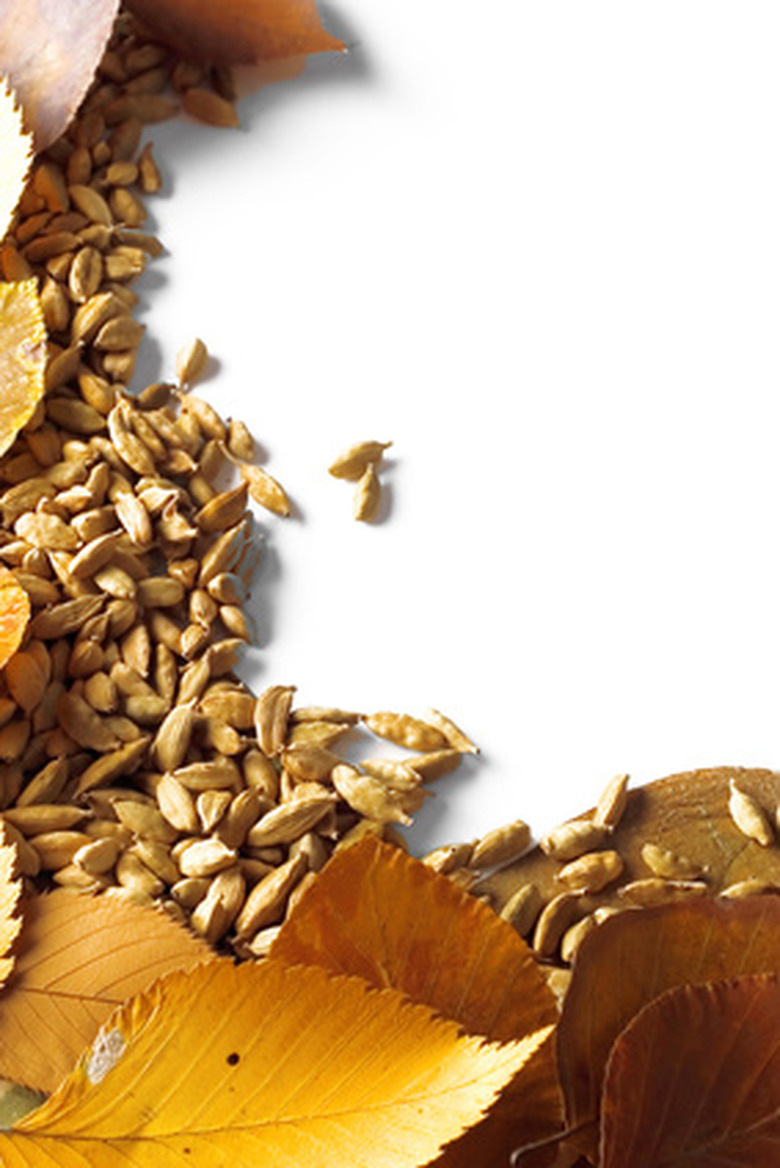The Uses Of Cardamom
Cardamom (Elettaria cardamomum) comes from a region of Sri Lanka. It's additionally cultivated in El Salvador, Cambodia and India. A favorite herb for trade and commerce, cardamom is a perennial that grows upward of 5 feet, with long leaves and oblong fruit capsules.
In Hoodoo, it's believed that carrying cardamom seeds brings good luck and improves relationships. In Arabia it represents hospitality, and in India cardamom seeds take part in wedding celebrations. They are eaten as a symbol of sweet joy.
Coffee Flavoring
In Arabic countries, coffee regularly features cardamom flavoring, which ties to its symbolic value of welcoming guests. Arabs consume over one half of the world's cardamom annually.
- Cardamom (Elettaria cardamomum) comes from a region of Sri Lanka.
- In Arabic countries, coffee regularly features cardamom flavoring, which ties to its symbolic value of welcoming guests.
Sweets
In Baltic regions, cardamom plays a role as a flavoring in treats, including sweet beverages and candy. People sometimes candy the seeds by themselves and use them as breath mints.
Aphrodisiac
The ancient Romans felt that cardamom made an excellent, exotic aphrodisiac to stimulate passions.
Curry
In Middle Eastern cuisine, cardamom appears regularly in curry recipes as a distinct flavor note. Cardamom has compound tastes including savory, sweet, citrus and lightly floral.
Folk Medicine
Folk remedies recommend cardamom as a digestive aid, and for treating colds and fevers.
Cigarettes
Cardamom may be rolled and smoked like tobacco or added to tobacco, providing a unique aroma and taste.
- In Baltic regions, cardamom plays a role as a flavoring in treats, including sweet beverages and candy.
- Cardamom may be rolled and smoked like tobacco or added to tobacco, providing a unique aroma and taste.
Pharmaceutical
Cardamom tinctures go into a variety of medicines, like cough syrup, to improve their flavors.
Cosmetics
The cosmetic industry uses cardamom for scenting powders, perfume and other aromatic products.
Aromatherapy
Aromatherapists recommend cardamom for improved focus and energy.
Gin
Some alcohol manufacturers use cardamom to make gin. One such brand, called simply No. 209, is produced in San Francisco.
Germinate Cardamom
Cardamom, also known as Elettaria cardamomum, is one of the world's most expensive spices next to saffron and vanilla. Cardamom grows natively in the Ghat Mountains of southwest India. Coat all surfaces of the seeds. Put a clean strainer in the sink, and then put the seeds in the strainer. Rinse the cardamom seeds under running water. Transfer the seeds to a bowl of lukewarm water and allow them to soak overnight. Cover the cardamom seeds with a thin layer of soil. Cardamom germination usually takes between 20 and 25 days, but can take up to 40 days. Provide overhead shade to protect seedlings from bright sun.
- Cardamom tinctures go into a variety of medicines, like cough syrup, to improve their flavors.
References
- UCLA Biomedical Library: Spices–Cardamom
- University of Delaware: Herbs and Spices–What goes with what food
- PubMed U.S. National Library of Medicine National Institutes of Health: Gastroprotective effect of cardamom
- National Bank for Agriculture and Rural Development: Cardamom
- Floridata: Elettaria Cardamomum

